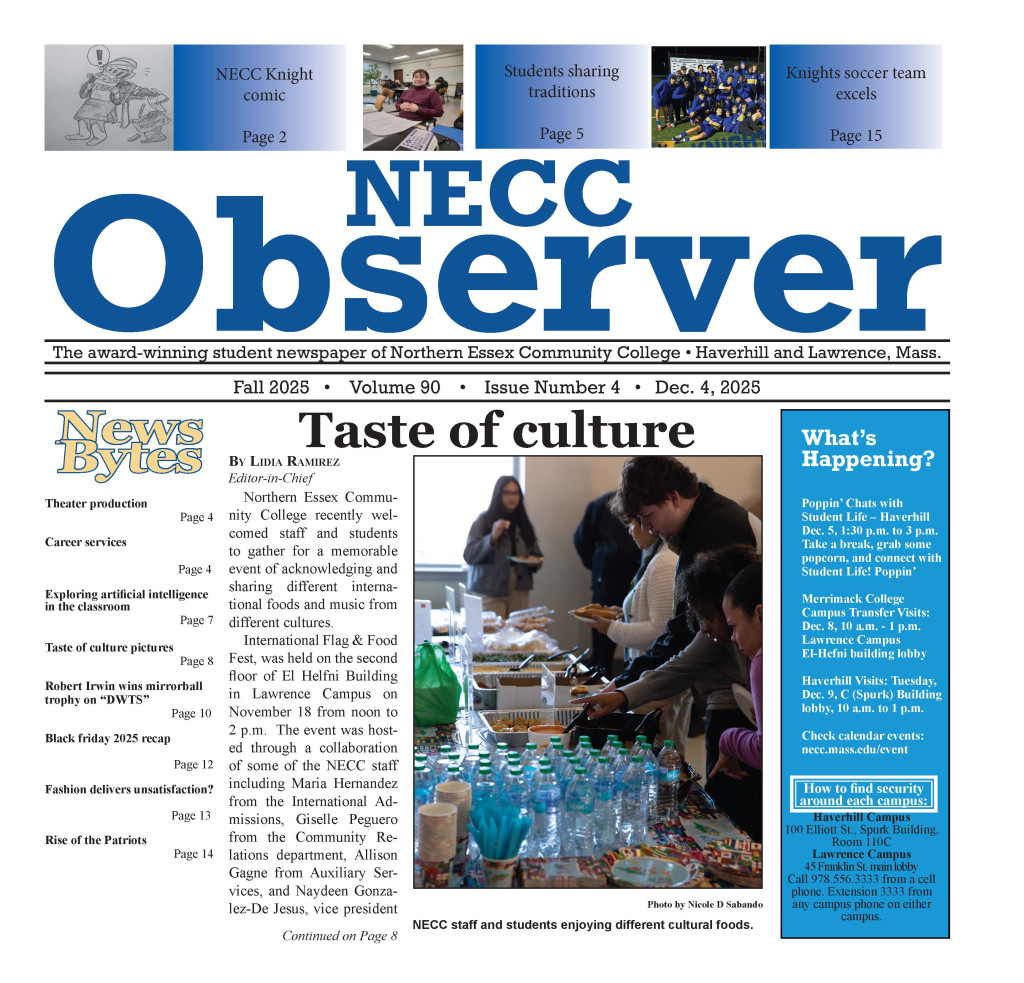On October 7th, 2023, Hamas militants unleashed one of its deadliest attacks in Israel in years. As of October 21, about 1400 Israelians have been killed from the attacks from this terrorist organization and they claim that they will stop at nothing until their one goal is reached, “The destruction of the State of Israel”. Since then, many governments have rallied behind Israel, which has been continuously dropping bombs on Gaza, flattening neighborhoods, and killing at least 4300 Palenstinians. Professor Stephen Russell, an NECC faculty member, says that he is “shocked at the level of violence that we have been seeing.”. But why is this all happening?
On October 23rd, I attended a presentation that was being given to the faculty and students at NECC by history Professor Stephen Russell, where he gave us background on what is really going on between Israel and Palestine and how it all led up to this point. Professor Russell talked about how the Israeli-Palestinian conflict dates back to the end of the nineteenth century. In 1947, the United Nations decided to partition Palestine into two countries, the Jewish state of Israel, and the Arab state of Palestine. Israel agreed to the partition but many Arab residents felt that this partition unfairly favored the Jewish population and violence soon broke out.
In 1948, the state of Israel was established. Almost immediately the Arab league, a group of surrounding Arab countries, rejected this partition and attacked. This is known as the First Arab-Israeli war, Israel fought back and after 9 months of conflict, its armed forces occupied a lot of the land designated to the Arab state of Palestine. The original plan for a Palestinian state was dismissed. This was a big victory for many Jewish people, but approximately 720,000 Arabs fled or were expelled from their homes and many took refuge in the Gaza strip and the West bank. Tension between Jews and Arab muslims in the region would continue for decades.
Fast forward to 2006, a militant Islamist group, Hamas, won the Palestinian legislative elections and it started to govern the Gaza strip. This terrorist group were known for their violent methods such as suicide bombings and calling for the destruction of Israel. Hamas and Israel have been violently clashing ever since. The purpose of this isn’t to condone or justify these kinds of actions, but to understand why it happened because if we don’t, it’s more likely we will never see an end to this.
For the past 16 years, the life of the Palestinians in Gaza has been described by the secretary general of the United Nations as “Hell on Earth”. Gaza has been under an Israeli siege so severe that it’s often called “the world’s largest open-air prison”. Cutting off their food supply, and fuel resources, and controlling them to a point where many people that were born in Gaza have never even left, or have seen a fellow Palestinian from the West bank. It has been so severe that the UN had warned Israel back in 2012 that if the policies in Gaza didn’t change, this tiny strip of land and the most densely populated places to live on Earth that now holds 2.3 million people, would become unfit for human living by 2020. It is difficult navigating through this conflict without knowing both sides of and having an understanding of why everything is happening, rather than just picking sides like social media wants us to.
After the presentation I had asked Deyanarah Gutierrez, an NECC student, what she had heard/seen about this war prior to the presentation and she said, “The presentation was the most information I’ve gotten so far. Most of the stuff I have seen are from social media like the pictures and video compilations of the violence, and stuff I haven’t been able to get out of my head. It’s hard to process what’s going on.”
I had asked another NECC student, Chris Drew, the same question and he said “I saw people post pro this side and pro that side, and saw my friends take a stance and I would read it and I’m like I don’t even know what’s happening.”. This just shows how important this presentation, even though it was only 25-30 people in the room, was so important. Now the ones that were there have a better understanding of what is happening and can inform others without bias what is really going on.
The only thing we can hope for is that the violence comes to an end soon, because at the rate that Israel is going at, it is scary thinking about the future of Gaza. We hope for peace even though we know it is hard to achieve based on the history between the two, it is something that we have to keep hoping for.
Professor Stephen Slaner shared these thoughts with an email to the Observer after the talk.
“Prof. Russell’s comprehensive talk October 23 on the war in Gaza seriously understated the gravity of the present situation,” Slater wrote. “While it is true that nuclear weapons are not being considered, Israel’s policy amounts to genocide. Here is an assessment by respected journalist Seymour Hersh: “Netanyahu’s attitude, as assessed by the intelligence analysts, I was told, amounts to a determination ‘to wipe out Hamas.’ One knowledgeable official told me that ‘Gaza City is in the process of being turned into Hiroshima with no nuclear weapons used.'”
“One step that can be taken is to urge our Congressional representative to support H.Res. 786: Calling for an immediate deescalation and cease-fire in Israel and occupied Palestine. The bill has one sponsor and 17 co-sponsors,” Slaner wrote.


